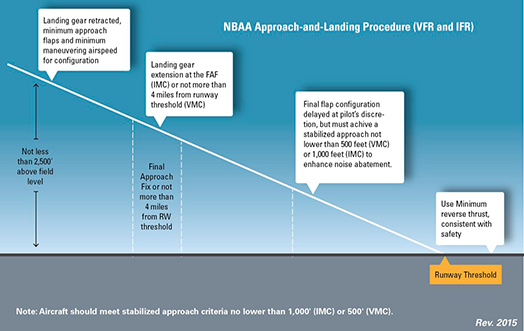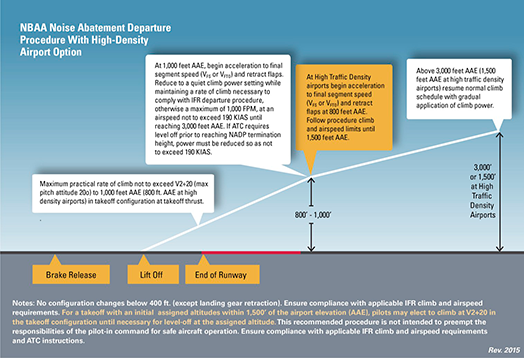Truckee Tahoe Airport
Truckee, California, United States
Noise Abatement Information - Last update 12/20/2023
Overview
The Truckee Tahoe Airport District and the citizens of the Truckee Tahoe community welcome you to our area. In order to be a good neighbor, the Airport and the community request that you follow these recommended noise abatement procedures, subject to weather, equipment and pilot capabilities. Please do not fly over residential areas and follow recommended arrival and departure flight paths depicted in the “Images / Diagrams” section below.
AS ALWAYS, FLIGHT SAFETY MUST SUPERSEDE RECOMMENDED NOISE ABATEMENT PROCEDURES.
Temporary Information
Parallel, Ramp, and Hangar Row Reconstruction July, August, Sept 2015
Curfews
All Runways | Arrival & Departure
Truckee has a voluntary curfew between 10:00pm and 07:00am. Please do not arrive or depart between these hours. Thank you.
Images / Diagrams
All Runways | All Aircraft Categories | Arrival Only
Truckee Tahoe Airport Noise Abatement Arrival Procedures

All Runways | All Aircraft Categories | Departure Only
Truckee Tahoe Airport Noise Abatement Departure Procedures

Runway 29 | Aircraft Categories: A, B, C, D & E | Arrival Only
Visual Arrival

Arrivals
All Runways | Aircraft Categories: A, B, C, D & HELI | Arrival Only
Prosser Reservoir Arrival
N 39.19.18 W 120.15.25
Initial heading 130 to Interstate 80. Straight in rwy 20 or fly overhead and join appropriate downwind for other runway.
Runways: 20 & 29 | Aircraft Categories: A, B & HELI | Arrival Only
Donner Lake Arrival
N 39.17.32 W 120.09.13
Enter downwind for rwy 29 along hwy 267 or right downwind for rwy 20.
Video Link – Rwy 29 ARRIVAL from the west over Donner Lake
Runways: 20 & 29 | Aircraft Categories: A, B & HELI | Arrival Only
Landfill Arrival
N 39.22.87 W 120.09.13
Enter extended downwind for rwy 29 along hwy 267 or right downwind for rwy 20.
Runway 29 | Aircraft Categories: A, B, C, D & HELI | Arrival Only
Lake Tahoe Visual Arrival
3.9 deg descent angle
Cross DLANI at/above 10,500 MSL.
LINNN >8,800
KNETH >7,800
BWMEN direct to rwy 29
CAUTION: Start turn to final abeam Northstar parking lots.
Departures
Runway 02 | Aircraft Categories: A, B, C & HELI | Departure Only
Prosser Reservoir
N 39.19.18 W 120.15.25
Please no turns to the west before 3.5 NM from TRK.
Runway 29 | Aircraft Categories: A, B, C & D | Departure Only
Rwy 29 Departures
Heading to 300 at end of rwy abeam hangars. Fly to Interstate 80 before turns on course.
Video Link – Rwy 29 DEPARTURE to the west over Donner Lake
Runway 02 | Aircraft Categories: A, B, C & HELI | Departure Only
Please use rwy 02 for calm wind departures during mornings and evenings.
Runway 20 | Aircraft Categories: A, B, C & HELI | Departure Only
Rwy 20 Departure
Left 270 overhead airport. Follow departure for rwy 29.
Preferential Runways
All Aircraft Categories | Departure Only
RWY02 (4,650 x 75 ft) Weight Limits S-35 D-50
RWY11 (7,000 × 100 ft) Weight Limits S-50 D-80
IMPORTANT
Preferential runway usage is VOLUNTARY. It is entirely up to the Pilot In Command to determine, based on ALL available information, if the preferred runway can be used safely. At a minimum, consideration to wind, traffic (including gliders), ATC instructions, and any other factors which could affect safety, ALWAYS supersedes consideration to preferential runway usage.
Pattern Altitudes
ALL VALUES ARE MSL (FEET)
All Runways | Aircraft Categories: A, B & HELI
7,000 MSL
All Runways | Aircraft Categories: C, D & E
7,500 MSL
Intersection Takeoffs
All Runways | Aircraft Categories: A, B, C, D & E
Intersection take-offs are prohibited
APU Use
Limit APU use to 15 minutes.
Flight Training
Please avoid repetitive operations during morning and evening hours. Please consider alternating runway usage, if able, during repetitive operations.
Community Groups/Info
In June 2005, the Airport Community Advisory Team (ACAT) was established to help the TTAD Board of Directors address the impact of the Truckee Tahoe Airport on the surrounding community. Made up of three pilots and three non-pilots, this advisory panel is key to fostering connections between the airport and the community. With the goal of turning input into action, ACAT seeks potential solutions from stakeholders, as well as through less formal channels. Effective and open communications between the airport and the community are essential in this effort. Since its formation, ACAT has held focus groups, surveyed residents and businesses, and conducted public meeting, among other efforts.
The Truckee Tahoe Airport Community Advisory Team (ACAT) meets the second Tuesday of every month, 9:30 AM, in the board room.
Flight Track Monitoring
Yes
Prior Permission (PPR) Operations
Runway 11/29 S-50, D-80. Runway 02/20 S-35, D-50. PPR available, contact airport general manager 530.587.4119.
Airport Contact Info
| Name: | Jeff Menasco, Director of Aviation |
|---|---|
| Phone: | 530-587-4119 x106 |
| Email: | jeff.menasco@truckeetahoeairport.com |
| Web Address: | http://www.truckeetahoeairport.com |
| Address: | 10356 Truckee Tahoe Airport Rd. Truckee California 96161 |
NBAA Procedures
AOPA Noise Awareness Steps
Following are some general guidelines and techniques to minimize the noise impact produced by aircraft operating near the ground.
1. If practical, avoid noise-sensitive areas such as residential areas, open-air assemblies (e.g. sporting events and concerts), and national park areas. Make every effort to fly at or above 2,000 feet over the surface of such areas when overflight cannot be avoided.
2. Consider using a reduced power setting if flight must be low because of cloud cover or overlying controlled airspace or when approaching the airport of destination. Propellers generate more noise than engines; flying with the lowest practical rpm setting will reduce the aircraft's noise level substantially.
3. Perform stalls, spins, and other practice maneuvers over uninhabited terrain.
4. Many airports have established specific noise abatement procedures. Familiarize yourself and comply with these procedures.
5. To contain aircraft noise within airport boundaries, avoid performing engine runups at the ends of runways near housing developments. Instead, select a location for engine runup closer to the center of the field.
6. On takeoff, gain altitude as quickly as possible without compromising safety. Begin takeoffs at the start of a runway, not at an intersection.
7. Retract the landing gear either as soon as a landing straight ahead on the runway can no longer be accomplished or as soon as the aircraft achieves a positive rate of climb. If practical, maintain best-angle-of-climb airspeed until reaching 50 feet or an altitude that provides clearance from terrain or obstacles. Then accelerate to best-rate-of-climb airspeed. If consistent with safety, make the first power reduction at 500 feet.
8. Fly a tight landing pattern to keep noise as close to the airport as possible. Practice descent to the runway at low power settings and with as few power changes as possible.
9. If a VASI or other visual approach guidance system is available, use it. These devices will indicate a safe glidepath and allow a smooth, quiet descent to the runway.
10. If possible, do not adjust the propeller control for flat pitch on the downwind leg; instead, wait until short final. This practice not only provides a quieter approach, but also reduces stress on the engine and propeller governor.
11. Avoid low-level, high-power approaches, which not only create high noise impacts, but also limit options in the event of engine failure.
12. Flying between 11 p.m. and 7 a.m. should be avoided whenever possible. (Most aircraft noise complaints are registered by residents whose sleep has been disturbed by noisy, low-flying aircraft.)
Note: These recommendations are general in nature; some may not be advisable for every aircraft in every situation. No noise reduction procedure should be allowed to compromise safety.
Mandatory Restrictions (None)
None
Preferential Instrument Procedures (None)
None
Reverse Thrust (No Restrictions)
No restrictions
Engine Runup (No Restrictions)
No restrictions
Stage II (No Restrictions)
No restrictions
Stage III (No Restrictions)
No restrictions
Noise Ordinance (None)
None
Noise Monitoring (None)
None
Airport Maps
Airport Contact
| Name: | Jeff Menasco, Director of Aviation |
|---|---|
| Phone: | 530-587-4119 x106 |
| Address: |
10356 Truckee Tahoe Airport Rd. Truckee California 96161 |
Weather Data

Loading Most Current Data...
Airport Data
| Elevation: | 5,901 ft |
|---|---|
| City: | Truckee, California, United States |
| Sectional Chart: | San Francisco |
| Flight Service: | Reno FSS |
| Wind Indicator: | Yes |
| Fuel: | 100LLA, A1+ |





